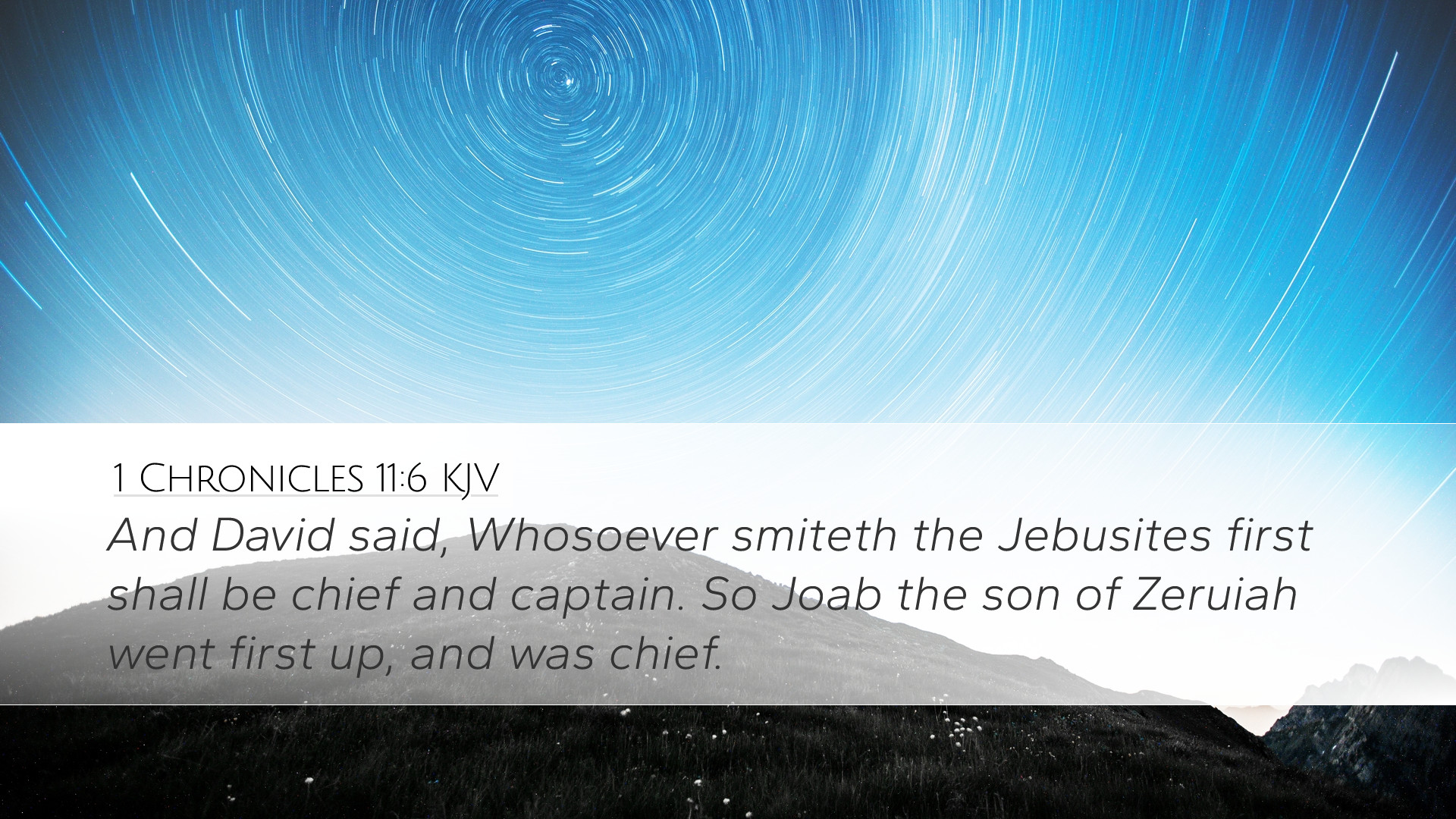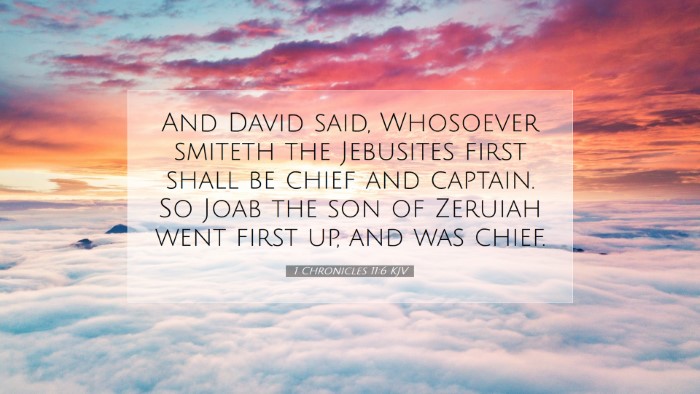Commentary on 1 Chronicles 11:6
Verse Text: "And David said, Whosoever smiteth the Jebusites first shall be chief and captain. So Joab the son of Zeruiah went first up, and was chief." (1 Chronicles 11:6, KJV)
Introduction
This verse from 1 Chronicles provides a pivotal moment in David's ascendance to kingship over Israel. Here we observe the dynamics of leadership, valor, and competition among David's men as they align themselves with his vision for a united Israel.
Contextual Background
1 Chronicles serves as an important account that parallels the narrative found in 2 Samuel but seeks to emphasize different aspects, particularly focusing on the reign of David. The Jebusites, inhabitants of Jerusalem, are symbolic of the challenges David faced as he sought to establish Jerusalem as the political and spiritual center of his kingdom.
A Historical Overview
The Jebusites were a Canaanite tribe, and their stronghold in Jerusalem represented a significant obstacle for David. Previous rulers had been unable to capture this city, and its strong walls lent it an air of invincibility. However, David’s determination and strategic thinking would soon prove crucial in overcoming this barrier.
Commentary Insights
Significance of David's Challenge
Matthew Henry emphasizes the leadership quality exhibited by David in this verse. David's proclamation set a clear challenge that not only showed his authority but also rallied his men around a common cause.
- Leadership Development: David's strategy indicates the importance of rallying support and instilling a sense of urgency in his followers, which is essential for any leader.
- Recognition of Valor: The promise of leadership to the one who firsts attacks the Jebusites indicates how David valued bravery and initiative.
Joab's Role
Albert Barnes comments significantly on Joab's actions. He was a warrior of considerable reputation and loyalty to David, and by taking the lead in this assault, he laid the foundation for his future influence and prominence in David's reign.
- Implications of Joab's Leadership: Joab’s success in this endeavor would ensure his place of trust in David’s inner circle, demonstrating that victory often leads to elevation in leadership roles.
- Character Formation: Joab’s courage is highlighted as an embodiment of the qualities needed for David’s military command—strength, initiative, and loyalty.
Theological Implications
Adam Clarke delves into the theological implications inherent in this verse. The battle against the Jebusites signifies more than a military conquest; it symbolizes overcoming spiritual and physical strongholds in our lives.
- Spiritual Warfare: Just as David and Joab fought against a physical enemy, believers are called to wage a spiritual war against sin and oppression.
- The Importance of Faith: The capture of Jerusalem illustrates the belief that with faith in God, even the most fortified places in our lives can be conquered.
Lessons for Pastors and Theologians
This verse offers profound lessons for contemporary leaders within the church:
- Visionary Leadership: Effective leaders must articulate a clear vision and challenge their followers to step into roles of action.
- Encouraging Initiative: Leadership should cultivate an environment where followers are encouraged to act boldly and take risks for the sake of the mission.
- Spiritual Conquest: The passage gives insight into the nature of spiritual battles that require not just strategies, but a trust in God's providence.
Conclusion
In conclusion, 1 Chronicles 11:6 serves as a multifaceted verse rich with historical significance, theological insights, and practical applications. David's challenge reflects universal principles of leadership, faith, and community engagement. As pastors, students, theologians, and scholars engage with this text, they are reminded of the valor needed to confront the challenges of their own 'Jebusites.'


